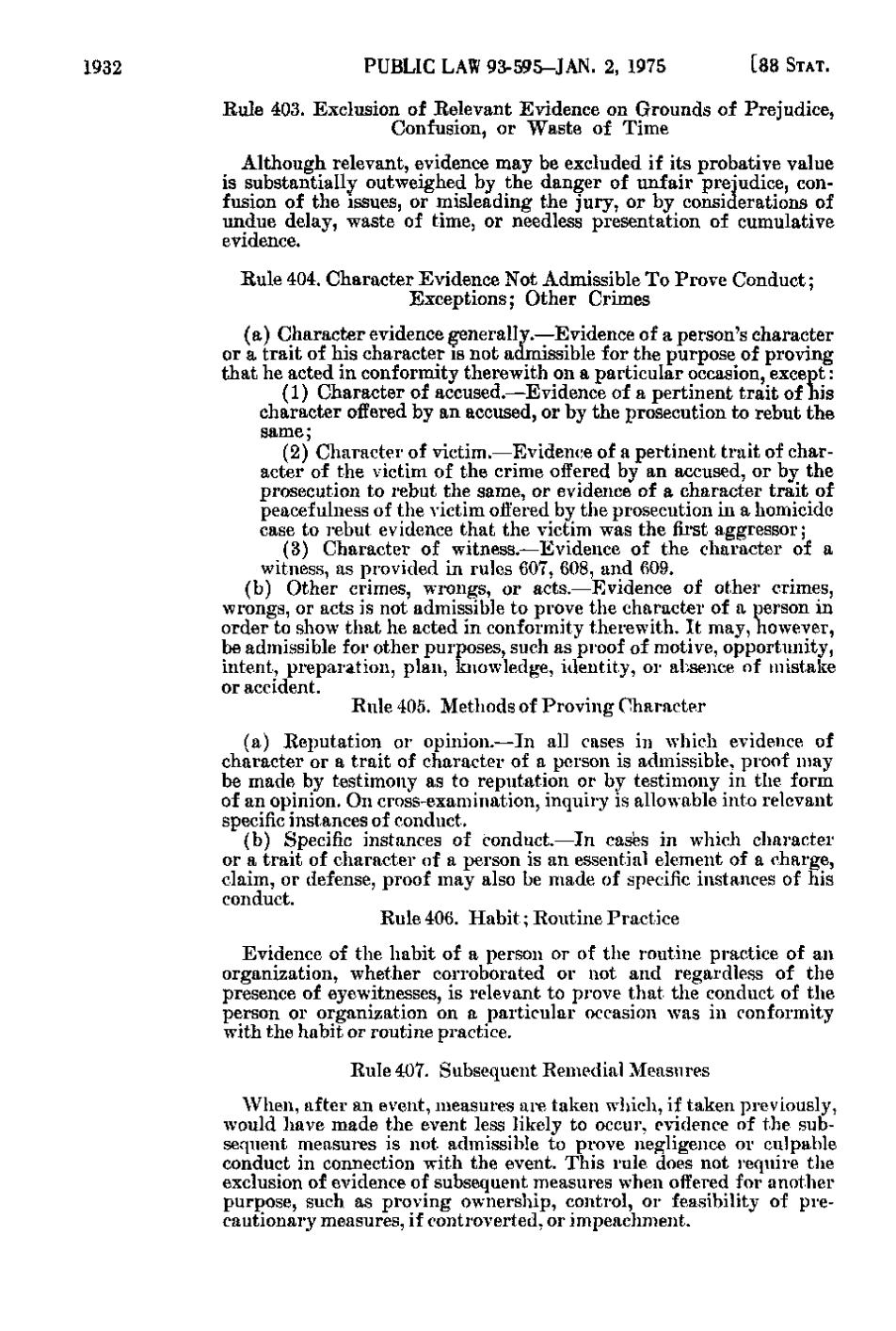1932
PUBLIC LAW 93-595-JAN. 2, 1975
[88 STAT.
Rule 403. Exclusion of Relevant Evidence on Grounds of Prejudice, Confusion, or Waste of Time Although relevant, evidence may be excluded if its probative value is substantially outweighed by the danger of unfair prejudice, confusion of the issues, or misleading the jury, or by considerations of undue delay, waste of time, or needless presentation of cumulative evidence. Rule 404. Character Evidence Not Admissible To Prove Conduct; Exceptions; Other Crimes (a) Character evidence generally.—Evidence of a person's character or a trait of his character is not admissible for the purpose of proving that he acted in conformity therewith on a particular occasion, except: (1) Character of accused.—Evidence of a pertinent trait of his character offered by an accused, or by the prosecution to rebut the same; (2) Character of victim.—Evidence of a pertinent trait of character of the victim of the crime offered by an accused, or by the prosecution to rebut the same, or evidence of a character trait of peacefulness of the victim offered by the prosecution in a homicide case to rebut evidence that the victim was the first aggressor; (3) Character of witness.—Evidence of the character of a witness, as provided in rules 607, 608, and 609. (b) Other crimes, wrongs, or acts.—Evidence of other crimes, wrongs, or acts is not admissible to prove the character of a person in order to show that he acted in conformity therewith. It may, however, be admissible for other purposes, such as proof of motive, opportunity, intent, preparation, plan, knowledge, identity, or absence of inistake or accident. Rule 405. Methods of Proving Character
- te
(a) Reputation or opinion.—In all cases in which evidence of character or a trait of character of a person is admissible, proof may be made by testimony as to reputation or by testimony in the form of an opinion. On cross-examination, inquiry is allowable into relevant specific instances of conduct. (b) Specific instances of conduct.—In cases in which character or a trait of character of a person is an essential element of a charge, claim, or defense, proof may also be made of specific instances of his conduct. Rule 406. Habit; Routine Practice Evidence of the habit of a person or of the routine practice of an organization, whether corroborated or not and regardless of the presence of eyewitnesses, is relevant to prove that the conduct of the person or organization on a particular occasion was in conformity with the habit or routine practice. Rule 407. Subsequent Remedial Measures When, after an event, measures are taken which, if taken previously, would have made the event less likely to occur, evidence of the subsequent measures is not admissible to prove negligence or culpable conduct in connection with the event. This rule does not require the exclusion of evidence of subsequent measures when offered for another purpose, such as proving ownership, control, or feasibility of precautionary measures, if controverted, or impeachment.
�
